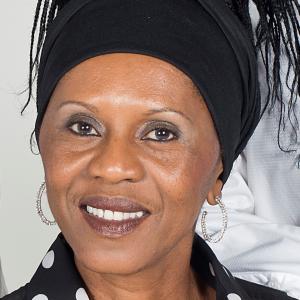Despite progress, COVID-19 threatens to cause irreversible harm to children’s education, nutrition and well-being - says UNICEF
20 November 2020
World Children’s Day activities are held in over 130 countries to provide a platform for children to speak out about their concerns and advocate for children being left behind.
Gobabis, Namibia, 20 November 2020 – Data from 87 countries reveals that 1 in 9 known COVID-19 infections are among children and young people under the age of 20, according to a UNICEF analysis report called “Averting a Lost COVID Generation”, released yesterday ahead of today’s World Children’s Day.
The report comprehensively dispels the myth that children are spared the worst of COVID-19. Children – especially the poorest and most marginalized – are amongst the hardest hit from disrupted services and increases in poverty.
Speaking at an event on behalf of the President of Namibia H.E. Hage Geingob, the Ministry of Gender Equality, Poverty Eradication and Social Welfare, Hon. Doreen Sioka said
“ We have achieved many milestones which we are proud of and it is this progress that encourages us to recognise and address the emerging challenges brought forth by COVID-19 to ensure that no child is left behind.”
According to recent government reports, as of 10th November 2020, 15% of the COVID-19 confirmed cases in Namibia are in the 0-19 age groups – this means 1 in 7 of the total confirmed cases are children.
The reports further states that despite the overall decrease in the total confirmed cases since the lifting of the Covid-19 State of emergency, the casing continue to flare up in close settings such as schools and hostels.
“This is just the ‘tip of the pandemic iceberg’. Not only are children suffering the direct consequences of this disease, the longer this crisis continues, the worse it gets for children. Missed education, worsening malnutrition, and rapidly rising poverty all threaten a lost generation” said Rachel Odede, UNICEF Representative to Namibia.
Averting a Lost COVID Generation is the first UNICEF report to comprehensively outline the dire and growing consequences for children as the pandemic drags on. It shows that while symptoms among infected children remain mild, infections are rising and the longer-term impact on the education, nutrition and well-being of an entire generation of children and young people can be life-altering.
Using new data from UNICEF surveys across 140 countries, the report notes that:
• Around one-third of the countries analyzed witnessed a drop of at least 10 per cent in coverage for health services such as routine vaccinations, outpatient care for childhood infectious diseases, and maternal health services. Fear of infection is a prominent reason.
• There is a 40 per cent decline in the coverage of nutrition services for women and children across 135 countries. As of October 2020, 265 million children were still missing out on school meals globally. More than 250 million children under 5 could miss the life-protecting benefits of vitamin A supplementation programmes.
• 65 countries reported a decrease in home visits by social workers in September 2020, compared to the same time last year.
More alarming data from the report include:
• As of November 2020, 572 million students are affected across 30 country-wide school closures – 33 per cent of the enrolled students worldwide.
• An estimated 2 million additional child deaths and 200,000 additional stillbirths could occur over a 12-month period with severe interruptions to services and rising malnutrition.
• An additional 6 to 7 million children under the age of 5 will suffer from wasting or acute malnutrition in 2020, a 14 per cent rise that will translate into more than 10,000 additional child deaths per month – mostly in sub-Saharan Africa and South Asia.
• Globally, the number of children living in multidimensional poverty – without access to education, health, housing, nutrition, sanitation or water – is estimated to have soared by 15 per cent, or an additional 150 million children by mid-2020.
To respond to this crisis, UNICEF is committed to continue working with the Government of Namibia and development partners and the Private Sector – to seek solution to:
1. Ensure all children continue to learn, including by closing the digital divide.
2. Guarantee access to nutrition and health services and make vaccines affordable and available to every child.
3. Support and protect the mental health of children and young people and bring an end to abuse, gender-based violence and neglect in childhood.
4. Increase access to safe drinking water, sanitation and hygiene and address environmental degradation and climate change.
5. Mitigate the rise in child poverty and ensure an inclusive recovery for all.
Namibia celebrated the day in Gobabis, Omaheke Region under the theme, “Kids Take Over” as part of the global “Reimagine” campaign which is focused on engaging children and young people. About 30 girls and boys out of school and children on the street aged 12-18, directed the programme and showcased their vision of the world they want to build amidst COVID-19 and beyond through song, dance and creative arts and crafts. During the week the children also participated in discussions and interviewed key political and government decision makers in Omaheke.
“As we are gathered here today, we are reminded of the impact of COVID-19 on the most vulnerable members of our society – children. We in Omaheke re-commit ourselves to work together with children – to reimagine their world where every child is safe, healthy, prosperous, has access to all services that will allow him/her to grow and develop to his/her full potential” said Hon. Pijoo Nganate, Governor Omaheke Region;








